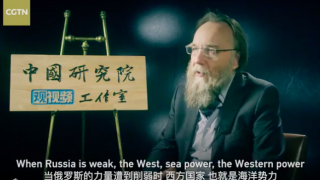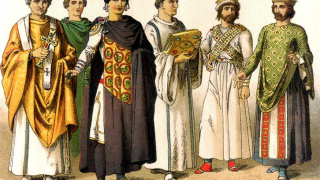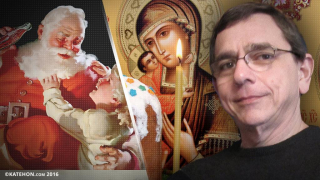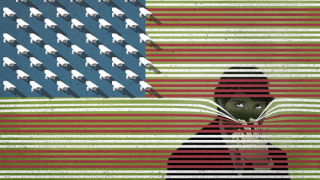The Decline of Christianity in the West
Many Christians in the West, like this fellow, are puzzled and dismayed by the muted response of Western leaders to the blasphemy during the Opening Ceremonies of the Paris Olympics:
Think about it: Our mortal enemy—Christendom‘s arch-adversary since their very conception in the Middle East—is now the only state actor actively defending Christ on the world stage.
(For instance, the Book of Concord has a reference stating that the Ottoman Empire [encapsulating Muslims as a whole] was the “most atrocious, hereditary, and ancient enemy of the Christian name and religion”)
I wish I could go back and tell Aquinas, Calvin, Martin Luther, and/or some of the Popes that this day would arrive. Could you imagine what they’d say? They probably wouldn’t even believe it.
Unfortunately, it is such men (Popes and Reformers) who have weakened the Church in the West by, in Christos Yannaras’s words, ‘religionizing’ Christianity, making it an individualistic, legalistic, earthly organization. He writes,
‘The West thus abandoned the Gospel understanding of “salvation” (making a human being “sound,” intact, as a hypostatic existence through participation in the ecclesial mode of loving existence and communion). The West returned to the commonplace religious concept of the legalistic justification of the individual through his or her virtues, self-control and good works.
‘Augustine’s legalistic way of thinking supports “individual” justification in juridical categories acceptable to the Roman mentality, introducing into the relationship between humanity and God a concept which we can call “transactional metaphysics.”
‘This “transactional metaphysics” is based on Augustine’s assumption that human sin is a “debt” which must be “redeemed” for justification in the sight of God. Redemption is realized on two levels: theologically by Christ’s death on the cross, offered as a “ransom” for the settlement of the infinitely great “debt” of human sin and impiety towards God, and anthropologically by the “penalty” imposed on the sinner which must be paid if his sins are to be redeemed.
‘ . . . But from the ninth century this “transactional metaphysics” had already entered into Western religious life. Religious texts present God as a “sadistic father” burning to satisfy his justice, and by logical extension delighted at the torture of sinners in hell. . . .
‘No other Christian heresy so effectively distorted the Christian Gospel. Perhaps this was because the West adopted the individual’s natural tendency to reduce this wonderful existential invitation to his own level, to “religionize” the Church’s inner life, to subject it to the demands of individual ideological certainty and psychological moral self-sufficiency. This natural tendency has always been a temptation for Christian consciences – ever since the time of the Judaizers of the first Christian communities.
‘ . . . In recent centuries discontented Europeans have realized something was wrong but underestimated the extent of the problem. They turned against “dogma” which made faith into a codified set of propositions, replacing experience by intellectualism’ (Orthodoxy and the West: Hellenic Self-Identity in the Modern Age, Chamberas and Russell, trans., Holy Cross Orthodox Press, Brookline, Mass., 2006, pgs. 39-42).
Mr Yannaras quotes Dostoyevsky on the fate of the Church in the West because of distortions of the Faith like the above:
‘In the West there is no Church at all, only clergy and magnificent church architecture. Denominations try to aspire to the virtues of the state that swallows them up. This is what I think has happened in the Lutheran countries. But in Rome the state replaced the Church a thousand years ago’ (Ibid., pgs. 43-4).
All of this amounts to the following: Religious leaders in the West distorted the essential Christian teaching that Christ became man so that man might become a god by Grace (an oft-repeated phrase of many Church Fathers), so that he might himself be taken up into and experience the Life shared by the Persons of the Holy Trinity, through union with Christ the God-man and His Church, even while here on the earth. They gave Western man instead an ugly simulacrum that focused on guilt and wrath and punishment, and on intellectualism and legalistic justice. Westerners eventually realized something had changed in Western Christianity and began to abandon the ‘religionized’ Church – slowly at first but now accelerating quickly. Thus we have reached the point today where there are few who are willing to defend this distorted form of Christianity when it is attacked, as it was recently in Paris.
The answer to Christianity’s decay in the West isn’t a new reformation, but simply a return to the original Faith that she twisted and tangled over the centuries, a return to the Orthodox Church and her eucharistic life. Mr Yannaras describes that life briefly this way:
‘Thus the Eucharist is the whole of our salvation, the whole truth and realization of the Church’s Gospel. Every local Eucharist, every particular celebration of the “memorial” of Christ’s sacrifice, is the realization and manifestation of the universal Church: the comprehensive renewal of the created and the vivification of the mortal. The Eucharist is the truth and completion of the Church, the transformation of the mode of human existence. Any institutional, administrative or organizational structures that are independent of the Eucharist betray our reliance on nature’s capabilities, our imprisonment (even if a “religious” imprisonment) in natural self-sufficiency, in a death without hope’ (Ibid., pgs. 31-2).
This was the Church of the West for the first 1,000 years of her Christian life. The door remains open for her to rediscover and explore that Church. Mr Yannaras’s book is available here as a free PDF for those who want to read more of it. For those in Dixie in particular, the Ludwell Orthodox Fellowship is holding a conference in September in Texas for those who would like to go that route. Paul Kingsnorth provides a helpful list of books, web sites, etc., about Orthodoxy for beginners.
Yes, the West is in a bad state, but she can get herself out of this morass by uniting herself to the Orthodox Church. We love our Roman Catholic and Protestant family and friends and have deep respect for them, and always will, but we hope they will consider the Orthodox Way nevertheless so that from the evil of the Paris Olympics some good may come.














